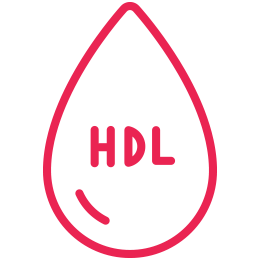Intermittent fasting is a growing trend around the globe among those looking to lose weight and improve their health. But is not eating for 16-24 hours actually good for you? Is intermittent fasting healthy? For National Fasting February, we’re talking all about intermittent fasting, breaking down the health risks and benefits of this popular diet.
What is National Fasting February?
National Fasting February is relatively new. Observed in conjunction with American Heart Month, which promotes healthy lifestyles to reduce your risk of heart disease, Fasting February began in 2019. Its primary focus is to promote the importance of metabolic health. Metabolic health refers to how well our bodies generate and process energy. There are 5 measurable attributes that define metabolic health:

Blood sugar
Blood sugar, also called glucose, refers to the primary sugar found in your bloodstream. Your cells use this sugar as their main source of energy. Insulin, a hormone made in your pancreas, stores any remaining sugar not needed for energy in your fat cells.

Triglycerides
That sugar stored in your fat cells? That’s called triglycerides. When your insulin levels are low, the triglycerides get released from your fat cells to produce energy between meals.

High-density lipoprotein (HDL)
HDL is also known as “good” cholesterol. This protein carries cholesterol to the liver, flushing it from the body.

Blood pressure
Blood pressure refers to the pressure of blood against the walls of your arteries, which carry the blood from your heart to other areas of your body. Your blood pressure rises and falls throughout the day and is measured using two numbers: systolic and diastolic. Systolic pressure is the measurement of your blood pressure during each heartbeat. Diastolic pressure is the measurement of your blood pressure between each heartbeat.

Waist circumference
Waist circumference refers to the measurement of your waist at its smallest point. You can measure this yourself at home by wrapping a measuring tape around your waist once, just above the hip bones. The recommended waist circumference is under 40 inches for men and under 35 inches for women.
Poor metabolic health, or metabolic syndrome, can result in long-term illnesses such as diabetes, cancer, and Alzheimer’s. The good news is that metabolic health can be improved or maintained by consistently making decisions that will keep your glucose levels in a healthy range, such as eating healthy foods, exercising, and sleeping well. Another way to improve metabolic health? Intermittent fasting.
What is intermittent fasting?
First, let’s address what intermittent fasting is not. It is not a diet from foods that you love or often eat. Instead of addressing what you eat, intermittent fasting is about when you eat. It is a meal plan in which you swap between fasting and eating on a regular basis. As mentioned before, when you eat, your food is broken down into sugar which produces energy. Any remaining sugar is stored in your fat cells, but you must have insulin in order for the sugar to enter those cells. Once you’ve gone hours without eating, your insulin levels will go down far enough and long enough that those sugars are able to be released, burning away fat.
Does intermittent fasting work?
There is good evidence that intermittent fasting does work depending on how you do it. If you live a healthy lifestyle and eat a healthy diet, then fasting can be very effective for weight loss. But if you compensate by overeating on the days you’re not fasting, it will be much less effective.
How to do intermittent fasting
There are many different schedules of intermittent fasting you can do, and it’s best to check with your doctor before getting started, but here are some examples of how to fast intermittently.
- The daily plan: pick a set number of hours to restrict all your daily eating. For example, a 16/8 plan would mean that you can eat throughout an 8-hour period each day and fast for the remaining 16 hours.
- The 5:2 plan: eat regularly for five days, and then limit yourself to one 500-600 calorie meal for the other two days. These days don’t need to be consecutive. For example, you may choose to eat regularly every day except Mondays and Thursdays, when you’ll drop down to one meal.
- The eat stop eat plan: fast for one or two 24-hour periods per week. You could eat regularly one day and then not eat again until dinner the next day, a full 24-hours following your previous meal.
Keep in mind that results will not be immediate and it may take 2-3 weeks for your body to adjust to its new meal routine. As with any diet, you’ll not see results overnight.
Intermittent fasting benefits
Intermittent fasting can have many good effects on your body other than just losing weight. Research has shown that this practice can also have the following benefits:
- Improve brain function and memory
- Improve heart health
- Improve physical health and performance
- Reduce risk for diabetes and obesity
New studies also suggest that intermittent fasting can help treat type 2 diabetes, reducing or even removing the need for medication. However, it is always best to discuss whether this type of diet is right for you with your primary care physician. Remember that we’re all different, so any diet you choose may affect you differently than others.
Risks of intermittent fasting
Not only can the side effects differ from person to person, but each plan may come with its own set of risks. You’ll want to talk through each plan with your doctor before getting started. Some common side effects of intermittent fasting are as follows:
- Sickness: If the fasting period is too long for you, you may start to feel headaches, constipation, and fatigue.
- Overeating: You may have a strong urge to overeat when you’re not fasting. This can cause the opposite of your desired outcome and lead to more health problems.
- Malnutrition: If you lose too much weight for your body type, you may experience decreased bone health, a weakened immune system, and low energy levels.
- Medication Reactions: As mentioned, it’s always important to talk to your doctor before starting any diet, particularly if you’re taking medications. Skipping meals and cutting calories may be dangerous for people with particular health conditions. People who take medications for blood pressure or heart disease may experience problems stemming from essential mineral imbalances such as sodium and potassium.
You should avoid intermittent fasting if you:
- Are under the age of 18.
- Are pregnant or breastfeeding.
- Have a history of eating disorders.
Final takeaways on the benefits and risks of fasting
As with any diet, there are risks and benefits involved, so it’s always important to discuss with your primary care provider before getting started. And make sure to eat well on your non-fasting days. Binge-eating junk food all day and then fasting the next will not likely help you to lose weight or improve your health.
As always, if you find yourself in an emergency situation, your Best Neighbors Ever are right down the road, open 24/7/365. And bonus! All our locations are now in-network with BlueCross BlueShield, Aetna, and Cigna!

Back to Blog